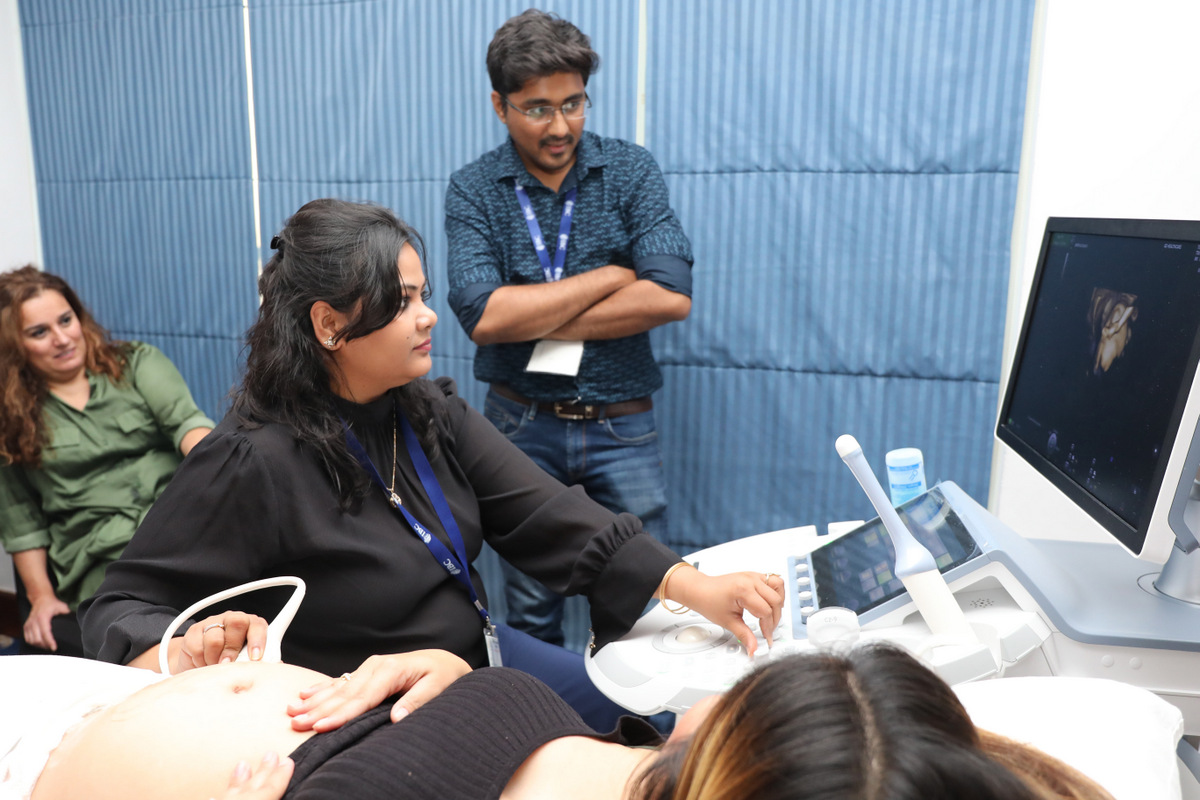Book an Appointment
Looking for the best treatments without a long waiting time?
Simply reserve a time slot, walk in at the appointed time and get prioritized treatments at no extra cost. Call Now for an appointment.
Add. : R-1, Vigyanpuri, Shadab Colony, Mahanagar, Lucknow
Book Appointment : ![]() +91 8283083082
+91 8283083082
Chorionic villus sampling (CVS) is a prenatal diagnostic procedure in which a small sample of cells is taken from the placenta. The placenta is made up of cells that are genetically identical to those of the developing fetus, so by analyzing the DNA of these cells, doctors can gain information about the genetic makeup of the fetus.
WHY IS CVS DONE?
Chorionic villus sampling (CVS) is done for prenatal diagnosis of genetic or chromosomal abnormalities in the developing fetus. Here are some common reasons why a healthcare provider may recommend a CVS:
CVS is performed to provide important information to expectant parents about the health of their developing fetus, and to help them make informed decisions about their pregnancy and future medical care.
How is CVS done?
Chorionic villus sampling (CVS) involves obtaining a small sample of placental tissue for analysis. Here’s what you can expect during a typical CVS procedure:
What should I expect before the procedure?
Before the procedure, you will likely have an ultrasound examination to determine the location of the placenta and the gestational age of the fetus. You may also have blood tests to screen for certain genetic disorders.
What should I expect during the procedure?
The CVS procedure is typically performed on an outpatient basis, and takes about 30 minutes. You will be positioned on an examination table and may be given local anesthesia to numb the area where the CVS will be performed.
During the procedure, a thin needle is inserted through your abdomen or vagina (transcervical) into the placenta under ultrasound guidance. A small sample of chorionic villi tissue is then collected and sent to a laboratory for analysis.
What should I expect after the procedure?
After the CVS, you may be asked to rest for a short time before being discharged. You may experience some cramping or spotting for a day or two after the procedure. You should avoid heavy lifting and strenuous activity for a few days, and your healthcare provider may recommend avoiding sexual activity for a week or two.
What are risk associated with chorionic villus sampling?
Chorionic villus sampling (CVS) is a prenatal diagnostic test that carries a small risk of complications. Here are some of the potential risks associated with CVS:
It’s important to discuss the potential risks and benefits of CVS with your healthcare provider before deciding whether to undergo the procedure. They can help you weigh the risks and make an informed decision about whether CVS is right for you.
How long will it take for the results to come?
The results of the CVS test are usually available within one to two weeks, and will be discussed with you by your healthcare provider. If the test indicates a genetic or chromosomal abnormality, you will be provided with information about your options for further testing and management of the pregnancy.
Looking for the best treatments without a long waiting time?
Simply reserve a time slot, walk in at the appointed time and get prioritized treatments at no extra cost. Call Now for an appointment.

+91 8283083082